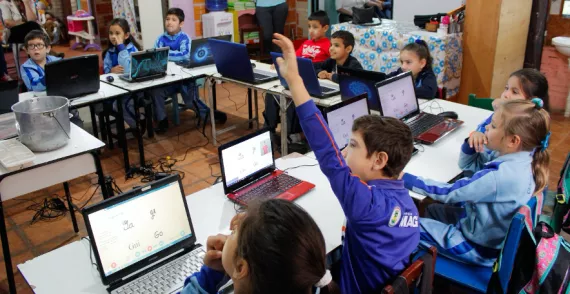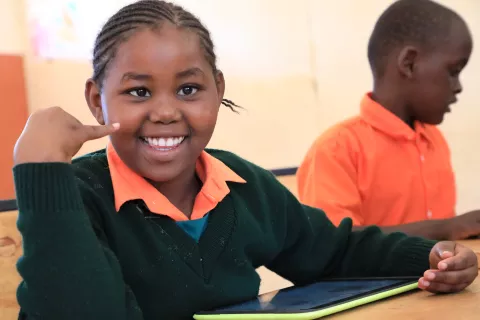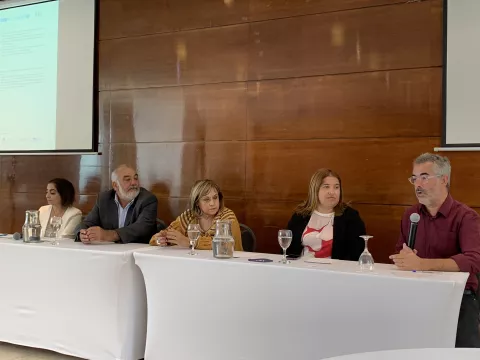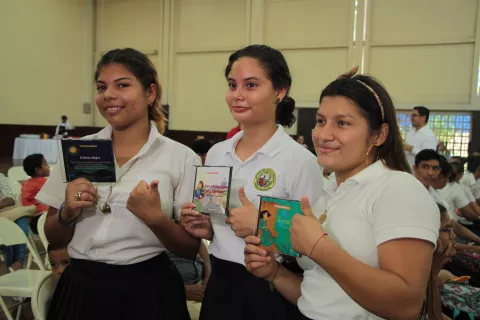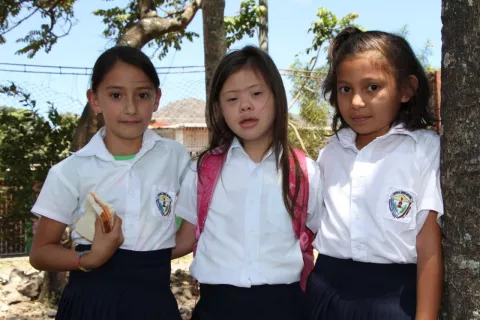Paraguay pilot
Reflecting on the results of the pilot in Paraguay
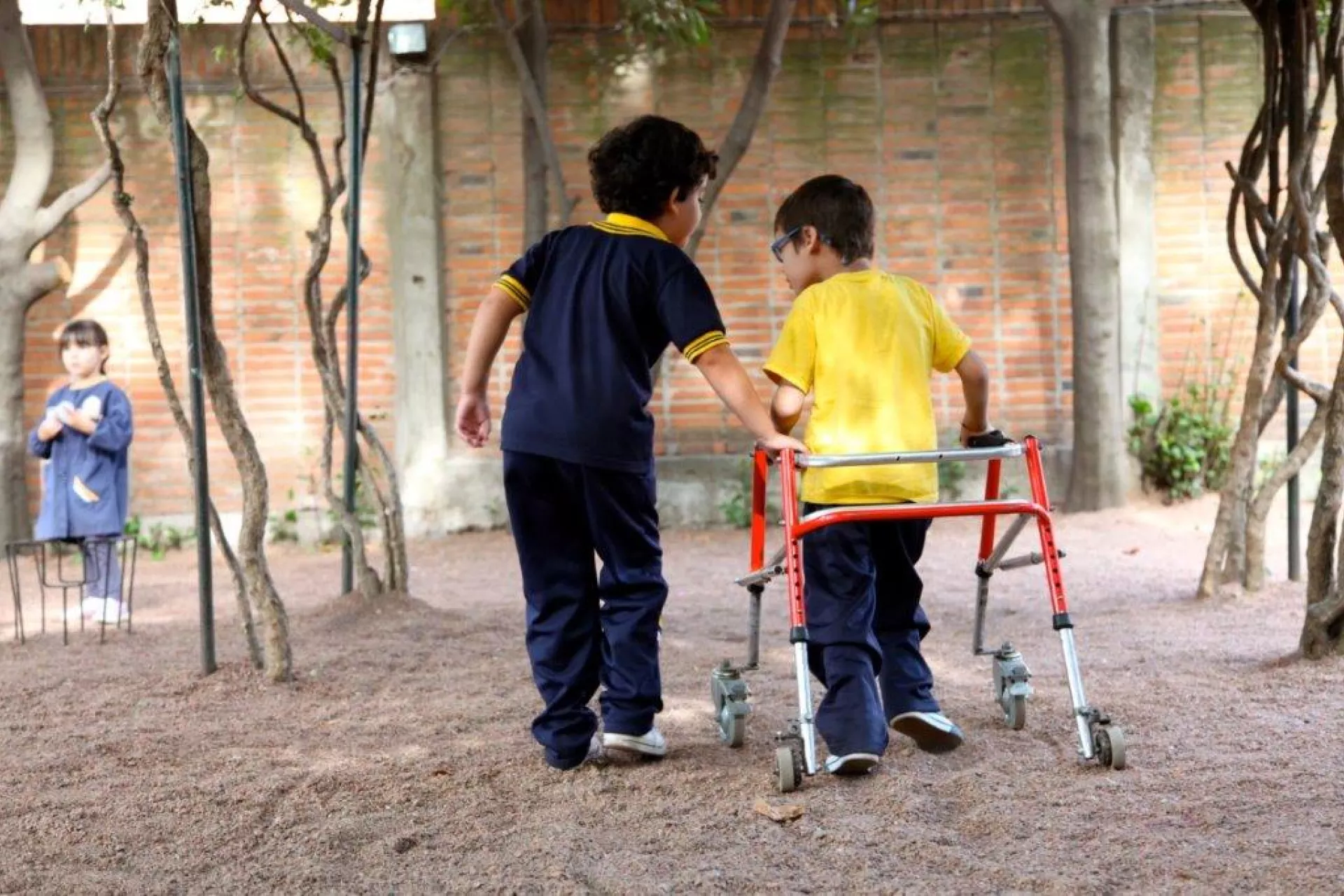
After participating in an inclusive development experience, Carmen Cosp (ADEC; Ultima Hora, 2014), said: “We became aware that the discrimination mechanism is active in each one of us, no organization is free from it, be a private, public or religious one. No schools, political groups or press organisms are free from it… discrimination is part of our everyday life. We segregate, judge, criticize and label those who are not like us, because they have different beliefs, belong to a different political group, have a different ideology, capacities, social origins or education. We even exclude on social networks”.
These words clearly reflect the issues we wish to address during this experience, which in a school context, is above all visible when it comes to students who encounter participation and learning barriers due to disability. In the educational field, school is the place where difference and diversity coexist, where teachers, administrators, students and families can transform classrooms into inclusive spaces - if we agree that inclusion implies facilitating access and minimizing barriers within the school environment.
This is why, when we speak about inclusion, a direct relationship to accessibility is implied and it does not only refer to architecture.
Our laws (Sassaki, on inclusive education, MEC, 2013) state different accessibility dimensions: architectural/urban planning, programmatic, attitudinal, instrumental, communicational and methodological. However; today, one of the greatest barriers to quality education - that is collaborative, inclusive education- is the teaching methodology we impose on the system as the only way to learn, denying those who “learn differently” of that basic right.
And it is here that textbooks, as a key tool to gathering information, can become a great facilitator or a great obstacle to effective learning.
When we define the experience from the Universal Design for Learning (UDL) perspective and we propose the “same book for everyone” we are not only referring to the printed textbook, if that were the case we would have a standardized vision of learning. We now know that the way in which we apprehend information and how we perceive the world around us (UDL principle 1) is as diverse as human beings are. When it comes to inclusion, this determines the way in which we present information to students, the support we use and the ways in which information must be presented and elaborated, the way in which we identify what the student knows or feels, the way in which the student is interested or motivated by what he/she is presented with in the classroom.
The right to reading: a key component to quality schools.
Dina Grijalva (2016:8), an expert from Mexico, stated that “reading can be a way of knowing, it can help us find solutions in life, it can also be a form of pleasure and, on certain happy occasions, it can provide all that at once: knowledge, assistance in searching for life solutions and pleasure (2016: 8)."
Even if we all consider that should be the case, it is important to remember that in our country, the ability to read has not been a privilege for all but for a few students. The most vulnerable populations, amongst which we find students with disability has been the more affected ones, due exactly to the absence of methodological and instrumental accessibility strategies from an inclusive UDL perspective.
This is why this initiative has greatly focused on the fact that not only we all have the right to read but also, all children have the right to the same reading material.
Each one of us is different and unique, not only different in relation to others but in relation to oneself. We change depending on the situation we live in. (Interview to Jennifer Levine, Director of Professional Learning in CAST (Center for Applied Special Technology - 2017). This should reflect on classroom practice.
What we have to do as teachers is change the way we teach, so that all our students can have access to the curriculum. (Levine, 2017)
The idea behind accessible printed textbooks based on UDL principles – with technology support- is basically that the entire elaboration, design and implementation process of study units in the textbooks can anticipate learning barriers and therefore allow for the design of units and activities to overcome those barriers. This is why, even if it evolves in the classroom, the process involves text developers, publishers, decision makers and the entire national education system.
The pilot experience for validating the accessibility guideline for printed textbooks was a coordinated work with state institutions: MEC, SENADIS, STP, and had UNICEF support. It included a technical team conformed by professionals from MEC, in order to build capacity and institutionalize the proposal and, in this way, continue going forward in creating UDL material. The result was an accessible digital product tested in four locations in Asunción and Central Department (Limpio, San Lorenzo and Lambaré), in schools where difference and diversity coexist. Even if, the pilot experience intends to make adjustments for improving the guide and material based on the interaction with children, the classroom experience was very positive and the material was perceived as very appealing by students and teachers.
We are living a moment of educational transformation where incorporating technology and UDL principles will guarantee inclusive quality schools for all.
International progress aligned with the innovation
New policy in Paraguay: On 6 August 2018, the Ministry of Education specified that all books it buys must be inclusive. This decision is aligned with Marrakesh Treaty commitments, and UNICEF will implement this policy by supporting the country in producing accessible digital textbooks and learning materials.
Articles about the UNICEF Disability Section in Paraguay from February 2019:
|
12-02-19 |
Ñanduti.com |
Producirán libros inclusivos en Paraguay con apoyo de expertos de la UNICEF |
|
12-02-19 |
Lanacion.com.py |
|
|
12-02-19 |
Agencia IP |
|
|
14-02-19 |
Agencia IP |
|
|
15-02-19 |
Diario La Nación |
|
|
16-02-19 |
Diario Última Hora |
Unicef pondrá a prueba nuevo método de aprendizaje inclusivo en Paraguay |
|
16-02-19 |
Hoy.com.py |
Unicef pondrá a prueba en Paraguay un nuevo método de aprendizaje inclusivo |
|
17-02-19 |
Metro RD |
Unicef pondrá a prueba en Paraguay un nuevo método de aprendizaje inclusivo |
MEC: Ministerio de Educación y Ciencias (Ministry of Education and Science)
SENADIS: Secretaría Nacional por los Derechos de las Personas con Discapacidad. (National Secretariat for Human Rights Protection of Persons with Disabilities)
STP: Secretaría Técnica de Planificación (Secretariat for Technical Planning)
Sources
• Cosp, Carmen. (2014) Diario Ultima Hora, web.
• Grijalva, Dina (2016). En Márquez Jiménez, A. (2017). Sobre lectura, hábito lector y sistema educativo. Perfiles educativos vol.39 no.155 México ene./mar. 2017
• MEC (2013). Law Nª 5136 / Educación Inclusiva. Paraguay
• Levine, Jennifer. Entrevista a directora de Aprendizaje Profesional en CAST (Centro de Tecnología Especial Aplicada- 2017). http://www.revistadeeducacion.cl/diseno-universal-para-el-aprendizaje-de-que-se-trata-esta-nueva-tendencia-educativa/
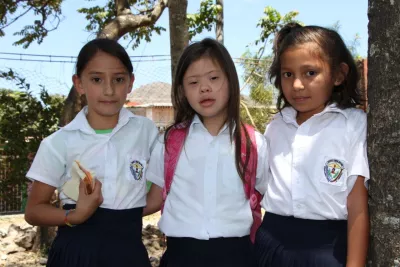
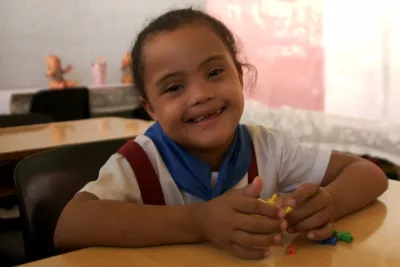
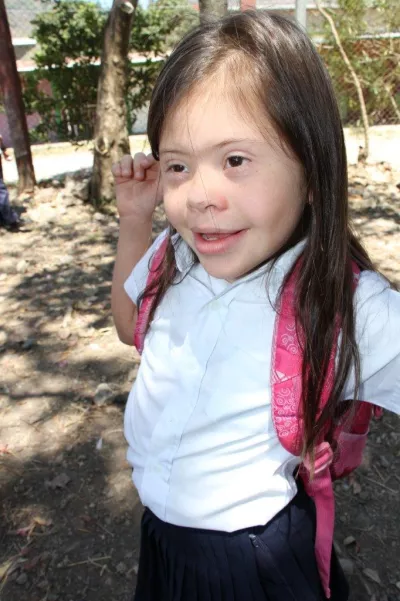
All children, including those with disabilities, have the right to read and deserve equal access to the same learning materials as their peers.
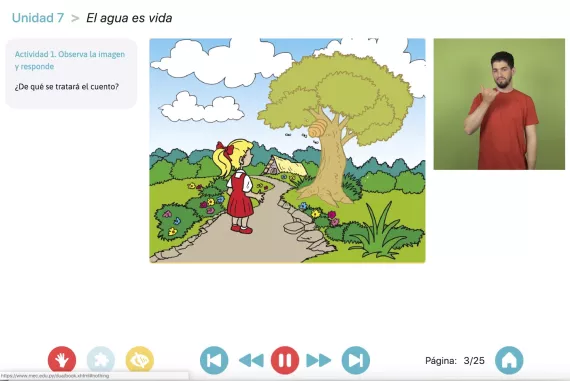
Access the live demo of the Paraguay UDL Textbook Prototype developed in 2019 by the Ministry of Education in Partnership with UNICEF country office and Pedro Milliet. The prototype features an easy to use interface, sign language video, text-to-speech, simple language, interactivity and languages Spanish and Guarani.
